Book Talk | Welp: Climate Change and Arctic Identities
Published in 2021, Welp: Climate Change and Arctic Identities explores the intersections of systemic racism, the Anthropocene, and environmental policy against the backdrop of Norway, Iceland, and the author’s Alaskan home.
“Climate change, first and foremost, is a cultural problem embedded in our connection to and use of land and water,” writes Michaela Stith, author of Welp: Climate Change and Arctic Identities. Through research, intimate interviews, and laugh-out-loud stories, her debut travel memoir pieces together a beautifully honest portrait of the Arctic focused on the ways international governance, conservation science, and cultural biases touch the lives of young Black and Indigenous people across the circumpolar North.
The Wilson Center’s Polar Institute, with the Dartmouth Institute of Arctic Studies and Hart Leadership Program, hosted a book talk and panel connecting policy, cultural safety, and food, water and environmental security in the Arctic region.
Selected Quotes
Michaela Stith, Program Assistant, Polar Institute; Author of Welp: Climate Change & Arctic Identities
“I believe we need to make changes in government policies, but many of those changes aren't politically viable, not yet. The inclusive and equitable governance will require cultural shifts, inner work, and patience for building new relationships. And the reason why I say that is because, as I show in that excerpt that I read earlier, these problems that we're creating, these structural equities that we're continuously recreating all the time, starts with us as people. It's not just out there; a lot of us have learned a lot of internal biases and it will require a cultural shift on a mass level. One thing I try to do with this book is really mainstream some of these concepts like white supremacy, which often people will stay 500 feet away from. I think it’s really important that we can talk about these very real and very obvious disparities within society and not have it be seen as something that is political because it is supported by scholarship and it is fact, in many times, that these inequities exist.”
“One thing that I really enjoyed looking back on the book was seeing that... in fact these solutions that we're looking for for climate change and for systemic racism and other large institutionalized problems, perhaps we already have the solutions and they're just not being brought to the forefront of the policy discussion because the right people are not in the room. A lot of the knowledge about how to have health outcomes, for example, healthy outcomes living in the Arctic has been passed down through thousands and thousands of years and yet there was intentional and currently is intentional policy making in order to get rid of all of that knowledge and assimilate people into western societies--often in order to make money.”
“We need to move beyond diversity and inclusion to really meaningful engagement. Like Michelle was talking about, you can have Permanent Participants sitting around the table but they have to be meaningfully engaged, and they also have to be funded adequately in order to prepare for these meetings. Beyond that there's a lot of different manuals and ways; actually, Inuit Circumpolar Council just released one on community engagement guidelines.”
Michelle Saunders, Policy Analyst, Nunatsiavut Government
“This might seem like it doesn't really make sense: but maybe not just sending every Indigenous kid to school to go get a political science degree and come back and work. I think there needs to be more ways of integrating this knowledge that we have and these ways of knowing that we've had for years and this new innovation.”
“I think it is also important to note that the Permanent Participants don't have the same voting abilities that the nations do, and its also kind of interesting when we talk about self-determination and land claims…[Nunatsiavut] government is part of Inuit Circumpolar Council. So we're trying to say we're self-determined and we're sovereign but then you look at the international stage and ICC, the Inuit Circumpolar Council, can't actually vote on these things. But the nation of Canada can.”
“A professor, an Indigenous professor, someone asked her how do you get more Indigenous people to go to graduate school, how do you get them into those programs, and I said: ask them. That is exactly what happened to me. My prof(essor) said do you want to go to grad school and that’s it…something I thought was completely out of reach, out of touch, ridiculous, it takes one person to make that happen.”
Larry Ibrahim Mohammed, Ph.D. Fellow, UiT - The Arctic University of Norway
“Indigenous people bring different thinking to environmental policy. We are so used to what Michaela calls white supremacy. I think this word of white supremacy is a metaphorical weight that speaks to the epistemological injustice that we see around, whereby everything from the western tradition supersedes every other tradition in terms of their ways of knowing and in terms of ways of being and so on. This has affected how Indigenous people's knowledge is valued and I think that if we begin to look at the important thinking that Indigenous people bring to this topic of environmental sustainability then we'll be able to achieve a lot of things.”
“There have been about 91 applications of wind farm applications out of last year and (a) majority of these wind farm applications in Norway have been granted permission to erect wind farms. This affects Indigenous land. Motivant Norway, which is a pressure group in Norway, estimates about 35.7 percent of wind energy that is produced in Norway can be found on Indigenous peoples' lands, that’s the Saami lands, which directly affects reindeer herding. And so this brings the critical question as to what are we pursuing. Are we pursuing climate justice to the detriment of other people's livelihood? These are questions we need to think critically about.”
“For over a year and a half or two, I thought I was the only person like me who was working in this complex [Fram Centre, Tromsoe, Norway]. Anytime I enter into this building I get stares, when I go to the canteen, obviously people notice you. This took some little work from university administrators who thought that we should give this boy a chance to go an intern at Arctic Frontiers. So if we all begin to be elements of change and shine a light in our small corners, I think this will go a long way to change some of these difficulties in terms of inclusion.”
Dr. Tony Sandset, Research Fellow, Centre for Sustainable Healthcare Education (SHE), University of Oslo
“We need policies that actually engage with social inequality as a vulnerability. We need good policy, health policies, the kind which acknowledges them and also makes sure that social vulnerabilities are being corrected along racialized lines. I think COVID, for instance, preparedness plans…we see that none of the pandemic preparedness plans either both in the U.S., Canada, Norway, and the E.U., none of them have taken into consideration social vulnerability or that ethnic and racialized minorities have been hit harder by, for instance, COVID, but also in the past, they've been hit harder by the so-called Spanish flu. We already know this and yet we continue to produce policies…that are leaving people behind.”
“It is our interest actually to become more sustainable if we are to avoid, or at least somewhat avoid, large pandemics in the future. I think this is a complex question, but we do have tools and it does have to do with regulation, for instance, it has to do with putting people over profit and not the other way around, it has to do with correcting systems that marginalize people in such a way that it pushes people to become vulnerable. I think here is where we can have policy but also, like Michaela says, there needs to be a cultural change where that cultural change is also acknowledging human vulnerabilities and also dependencies, not just upon each other but also upon the very ecosystem that we inhabit.”
“We know that there's a problem with top-down approaches when it comes to policies when it comes to health; we need bottom-up. We also need... indicator-driven policies where you put some sort of indicator that you're going to reach a target within such and such deadline. But we know that a lot of these policy indicators and targets are not necessarily set by the communities themselves. The indicators are rather first of all articulated by (an) expert panel and those indicators and metrics and even targets might not resonate with local communities, and they certainly in many cases might not take into consideration holistic approaches. They're often very much siloed in.”
Related Publication

Welp: Climate Change and Arctic Identities
Introduction
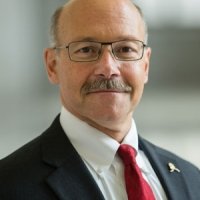
US Ambassador-at-Large for Arctic Affairs; Former Chair, US Arctic Research Commission
Moderator
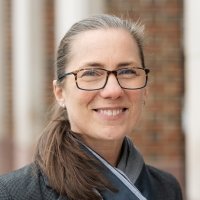
Panelists
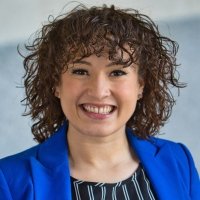
Author of Welp: Climate Change & Arctic Identities; Climate Justice Director, Native Movement
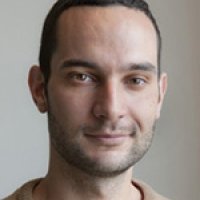
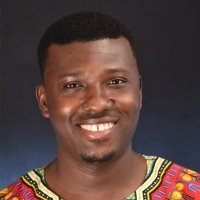
Hosted By

Polar Institute
Since its inception in 2017, the Polar Institute has become a premier forum for discussion and policy analysis of Arctic and Antarctic issues, and is known in Washington, DC and elsewhere as the Arctic Public Square. The Institute holistically studies the central policy issues facing these regions—with an emphasis on Arctic governance, climate change, economic development, scientific research, security, and Indigenous communities—and communicates trusted analysis to policymakers and other stakeholders. Read more


Environmental Change and Security Program
The Environmental Change and Security Program (ECSP) explores the connections between environmental change, health, and population dynamics and their links to conflict, human insecurity, and foreign policy. Read more


Canada Institute
The mission of the Wilson Center's Canada Institute is to raise the level of knowledge of Canada in the United States, particularly within the Washington, DC policy community. Research projects, initiatives, podcasts, and publications cover contemporary Canada, US-Canadian relations, North American political economy, and Canada's global role as it intersects with US national interests. Read more


Global Europe Program
The Global Europe Program is focused on Europe’s capabilities, and how it engages on critical global issues. We investigate European approaches to critical global issues. We examine Europe’s relations with Russia and Eurasia, China and the Indo-Pacific, the Middle East and Africa. Our initiatives include “Ukraine in Europe”—an examination of what it will take to make Ukraine’s European future a reality. But we also examine the role of NATO, the European Union and the OSCE, Europe’s energy security, transatlantic trade disputes, and challenges to democracy. The Global Europe Program’s staff, scholars-in-residence, and Global Fellows participate in seminars, policy study groups, and international conferences to provide analytical recommendations to policy makers and the media. Read more


